Celebrate and Preserve Kerala’s Cultural Legacy; Sri. Vivek Alva’s Reflections on the True “Kerala Story”
Kerala is more than just a state; it’s a vibrant culture that its people carry with them wherever they go. This is what the true “Kerala story” means to me; said Sri Vivek Alva, Managing Trustee of Alva’s Education Foundation. He was addressing Kalothsavam 2024 organized by Alva’s Kerala Samajam at the Degree College on Sunday. You must understand that today, Malayalees are respected and recognized all over the world because of their rich culture of assimilating to the heritage of the land, wherever they go. From my early years, I was exposed to Kerala’s rich culture; he said. There are many similarities between Kerala and Dakshina Kannada. For example, both regions have unique festivals and traditional practices like Bhuta Kola. The language barrier is also relatively low because of shared linguistic elements. Growing up in a region with a significant Malayalam-speaking population, I learned a lot from my Malayalee friends.
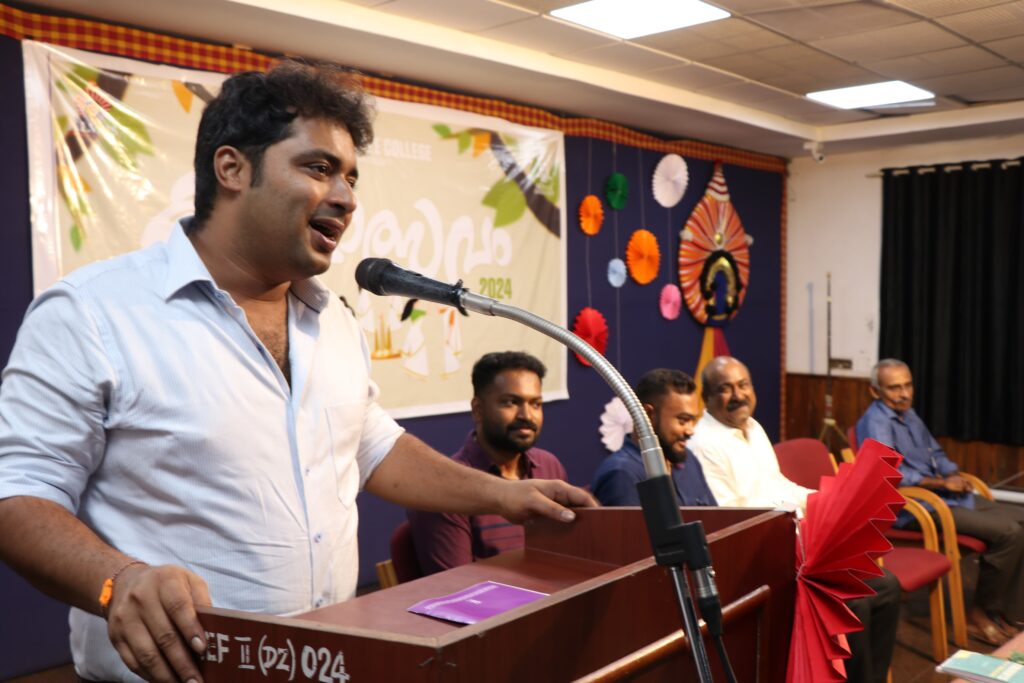
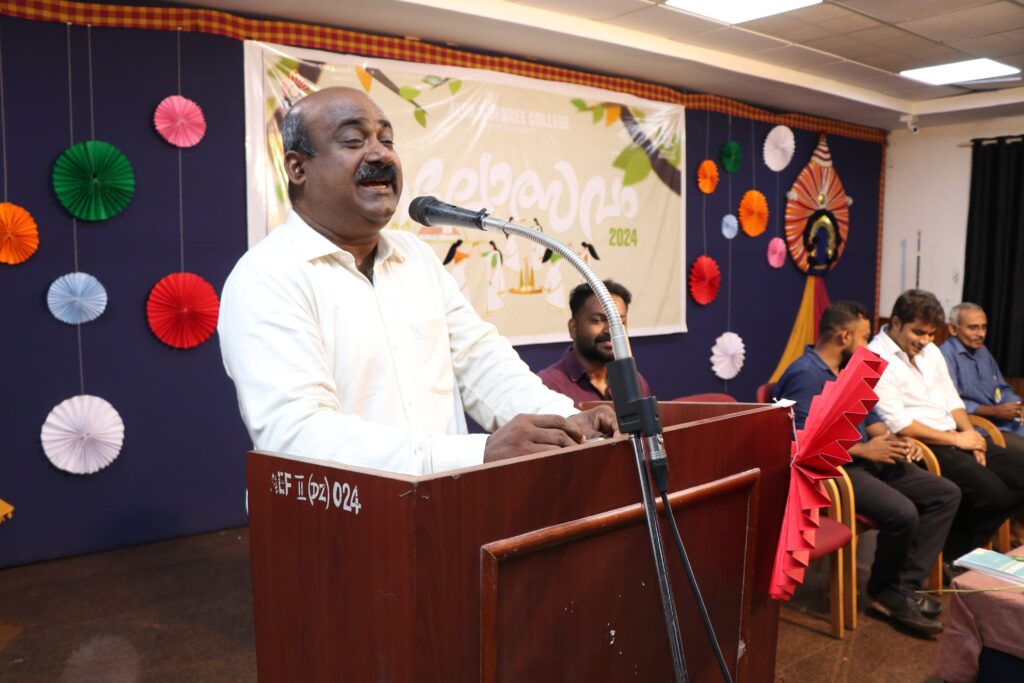
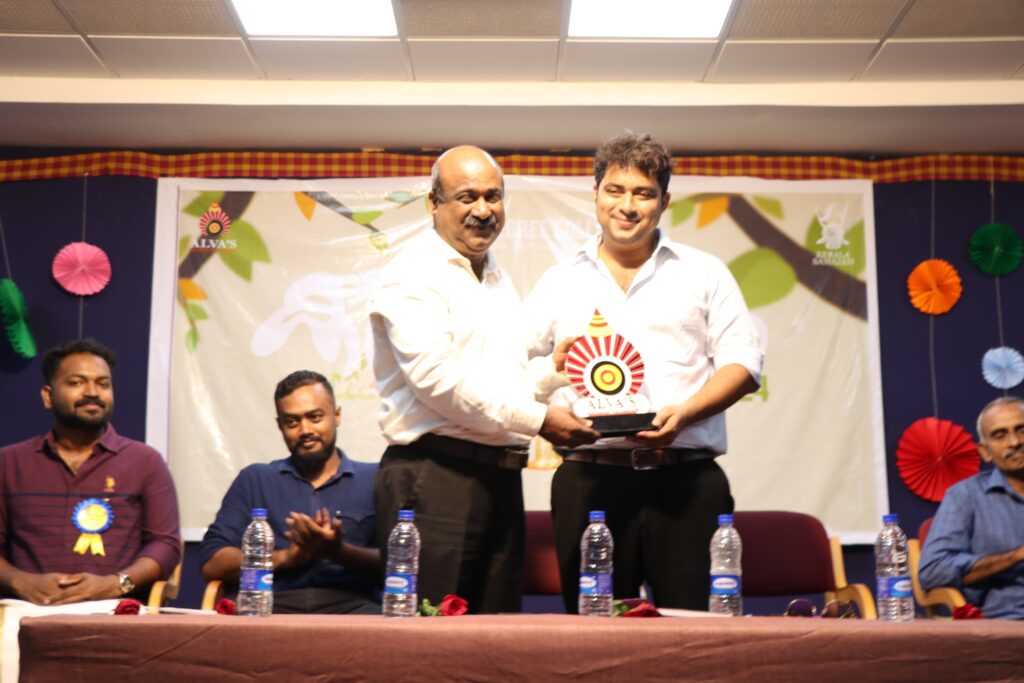
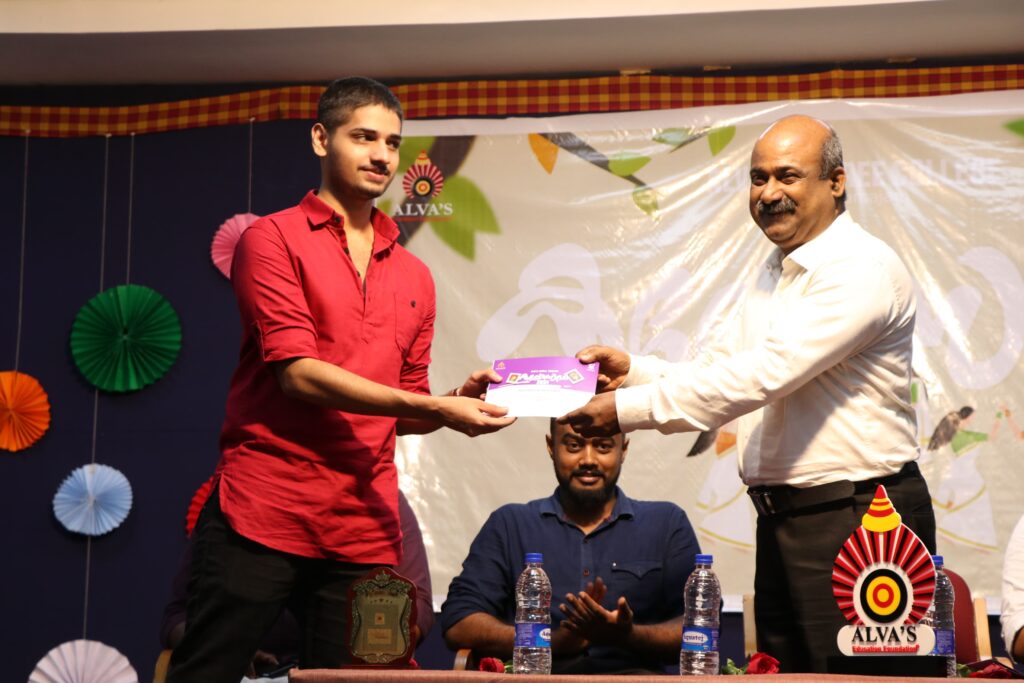
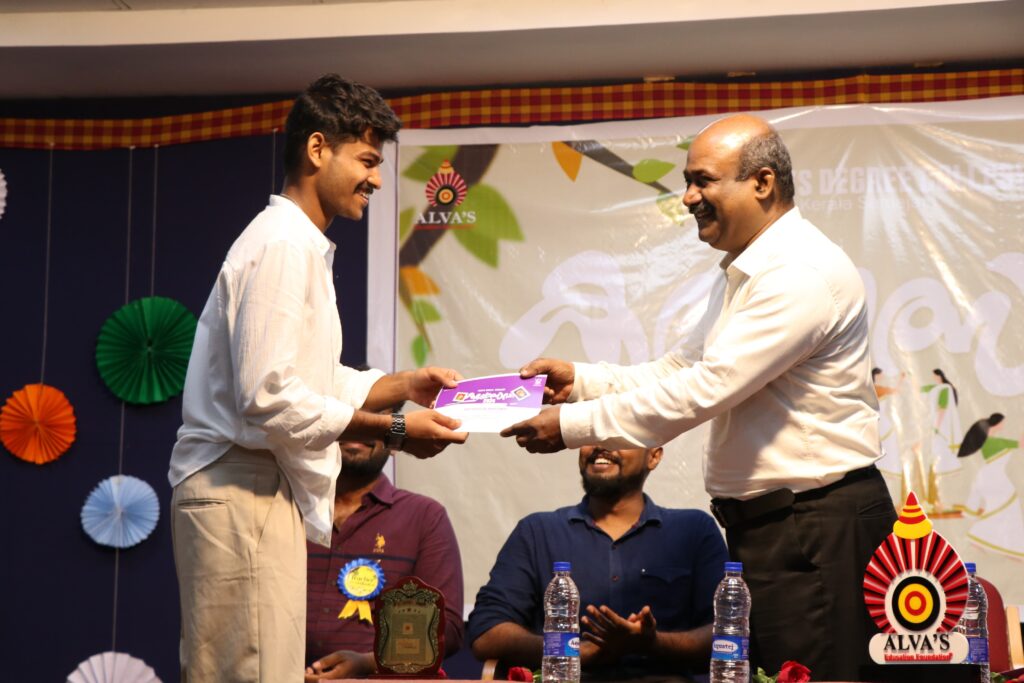
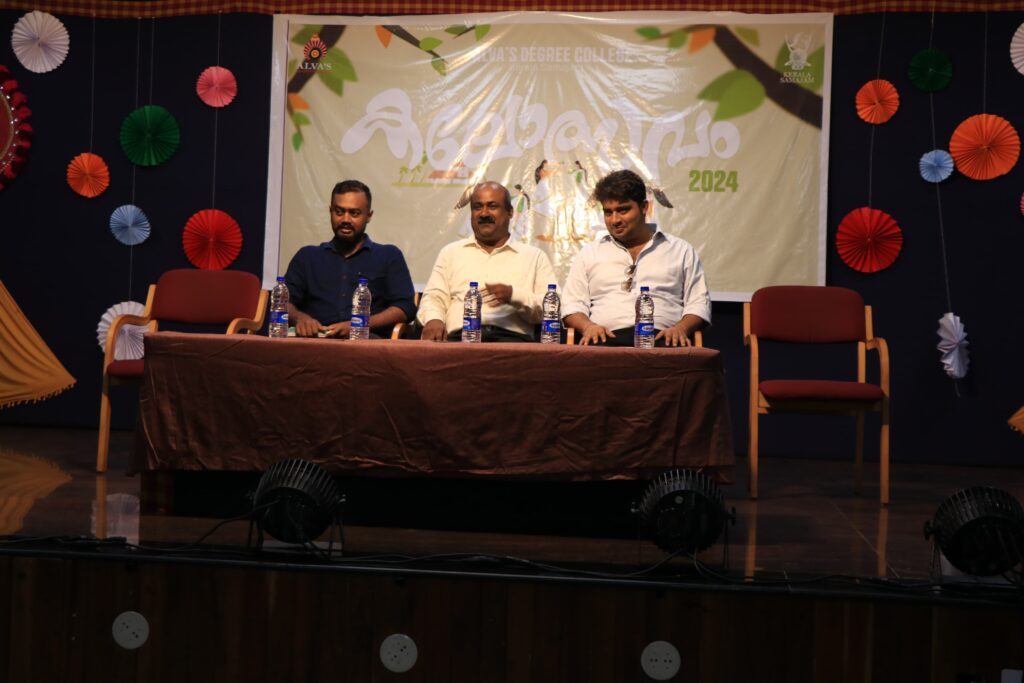
Since 1995, I’ve seen the Malayalee community establish institutions like nursing colleges and degree colleges. They have become integral to our community, both for good and for bad. I remember my early days when I was quite robust, but now I’m a bit more relaxed and balanced. Yet, the connection with Malayalee culture has always been strong, partly because our chairman is a cultural ambassador and a classical dancer who appreciates Kerala’s traditions.
Alvas, our institution welcome students from different regions, encouraging diversity on our campus. This variety helps us learn and grow together. I am very much aware about the importance of attracting students from various backgrounds. It enriches our campus culture and creates a sense of unity.
The Kerala Samajam plays a crucial role in promoting Kerala’s culture. I appreciate their commitment to organizing events and activities that bring people together. Even in sports and other cultural programs, the Malayalee students show a genuine effort to keep their traditions alive.
When we started the “Keraleeyam” program, it was about more than just enjoying cultural festivities; it was about learning and sharing. Even non-Malayalees began to understand and appreciate Kerala’s unique traditions. It’s essential to remember that our actions speak louder than words. When faced with misunderstandings of stereotypes to divide people and take away piece from the society, our response is always to continue promoting harmony and understanding; he narrated.
The diversity in Kerala’s culture is remarkable. From Christians to Muslims and Hindus, each group contributes to the rich values of traditions. Onam, for instance, is a celebration that brings everyone together, regardless of religious affiliation. This spirit of unity is something we need to share with the rest of the world.
As we move forward, it’s crucial to take responsibility for promoting Kerala’s culture and values. My chairman embraced this responsibility, organizing cultural events and supporting charitable initiatives. We must do the same, fostering a sense of unity and rejecting division based on religion, caste, or ethnicity.
Ultimately, it’s up to us to create a brighter future. If we don’t take responsibility, someone else will write our story. Let’s work together to showcase the beauty and richness of Kerala’s culture to the world; he said.
Editorial:
Celebrating Kerala’s Cultural Richness: A Call for Unity and Preservation
Kalothsavam 2024, organized by Alva’s Kerala Samajam, was not just a celebration of Kerala’s vibrant culture but also a reaffirmation of the importance of preserving and promoting cultural heritage. Sri. Vivek Alva, Managing Trustee of Alva’s Education Foundation, delivered an insightful address, underlining the significance of Kerala’s cultural legacy and the need for unity and cultural preservation. Kerala, often referred to as “God’s Own Country,” is renowned for its rich cultural heritage, which extends far beyond its geographical boundaries. Sri. Alva rightly pointed out that Kerala’s culture is not limited to the state but is a vibrant legacy carried by Malayalees wherever they go.
Sri. Alva’s reflections on his early exposure to Kerala’s culture and its similarities with Dakshina Kannada highlight the deep-rooted connections between communities. These connections, based on shared festivals, traditional practices, and linguistic elements, underscore the unity amidst diversity.
The contributions of the Malayalee community to the region have been substantial. Sri. Alva’s recognition of their contributions reflects a deep understanding of the symbiotic relationship between communities and the importance of collaboration.
Alva’s, as an institution, sets an example for the entire nation by promoting diversity on its campus and encouraging and celebrating students and their culture from various regions through large scale events. This diversity enriches the campus culture and fosters a sense of unity. Sri. Alva rightly pointed out that actions speak louder than words, emphasizing the need to continue promoting harmony and understanding, particularly in the face of stereotypes and misunderstandings.
The diversity within Kerala’s culture, with contributions from Christians, Muslims, and Hindus, is remarkable. Festivals like Onam serve as reminders of the spirit of unity that transcends religious affiliations, bringing people together in celebration.
It is imperative and equally essential to recognize our collective responsibility in preserving and promoting this heritage. Sri. Alva’s call for unity and cultural preservation echoes deeply, urging us to reject divisions based on religion, caste, or ethnicity. The editorial also represents the views of Global TV.





